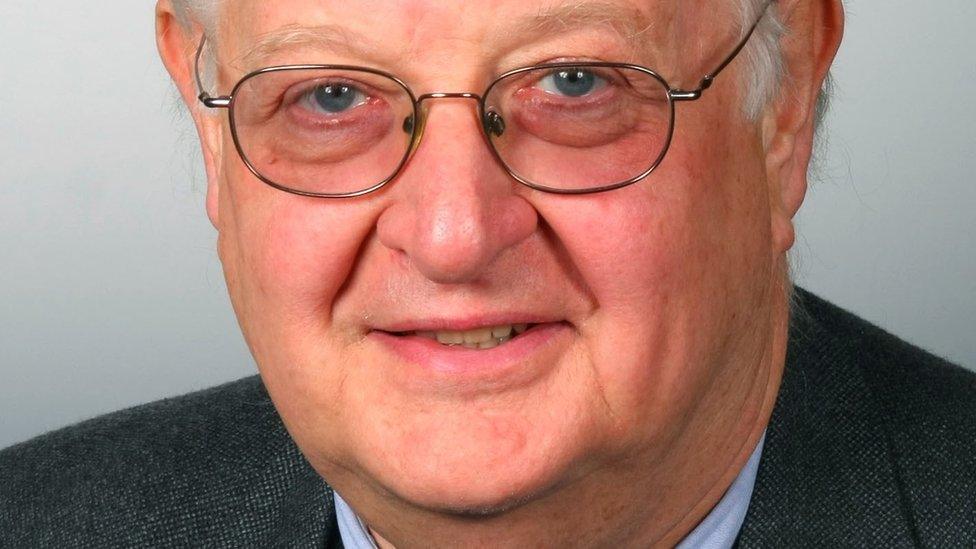The work of Nobel prize-winning economist Angus Deaton
- Published
Professor Angus Deaton spoke to the BBC about the aims behind his work
The 2015 Nobel Prize for Economics has been awarded to Scottish-born economist Angus Deaton.
Prof Deaton, 69, is currently professor of economics and international affairs at the Woodrow Wilson School of Public and International Affairs at Princeton University, in New Jersey.
What did he do to win the prize?
The Royal Swedish Academy of Sciences, which awards the prize, said that Prof Deaton's work has transformed several fields of economics.
More specifically, the organisation said he had made an impact on economic theory, and on the practical application of data to investigate poverty, and devise economic policy.
The headline to the statement from the academy that announced that Prof Deaton was its 2015 winner said: "Consumption, great and small", external. What does this mean?
Consumption, to an economist, means spending on goods and services by individuals and households.
Understanding it means looking at how consumers allocate spending between different things, how they divide their incomes between spending and saving, and how these patterns vary over time.
The "great and small" in the academy's headline reflects Prof Deaton's analysis of consumer spending across a whole economy, and at the level of the individual and the household.
One theme that runs through the academy's analysis of his work is the extensive use of data on spending taken from household surveys. Previously, economists worked much more from aggregate data for the whole economy.
This focus enabled Prof Deaton to produce a theoretical approach that was more consistent with the fluctuations in consumer spending that he found.
A more arcane achievement was in developing (with another economist John Muellbauer) a theory of demand for goods and services - how people allocate their spending between different products - that was motivated by problems in earlier analysis.
Their system, and subsequent improvements by other researchers, "has had an immense impact in academia as well as being greatly influential in practical policy evaluation".
Prof Deaton has been an influential figure in development economics. The academy describes him as an important driving force in the transformation of this area of economics - in moving from aggregate data to household surveys.
To take one example - his research shed light on the question of whether rising incomes do lead to more calories being consumed, in other words to reducing malnutrition.
His work suggests that it does - so encouraging economic growth can help tackle malnutrition. If that were not the case it would be an argument for reorienting policy towards direct food aid.
What does Prof Deaton win?
In addition to the greater recognition of his work, and the further respect of his peers, Prof Deaton receives a financial price of 8m Swedish krona ($966,000; £630,000).
What is his background?
Born in the Scottish capital of Edinburgh, Prof Deaton attended Fettes College, a private school in the city, before going on to study at Cambridge University.
After teaching at Cambridge and the University of Bristol, he continued his economics career in the US.
He holds both British and American citizenship.
When was the award created?
Unlike the other five annual Nobel prizes, the economics one was not established by Swedish industrialist Alfred Nobel, although like the Physics and Chemistry prizes it is awarded by the Royal Swedish Academy of Sciences.
Instead it was set up by Sweden's central bank in 1968 as a memorial to Mr Nobel, who died in 1896.
Its official title is the Riksbank's Prize in Economic Sciences.
- Published12 October 2015
